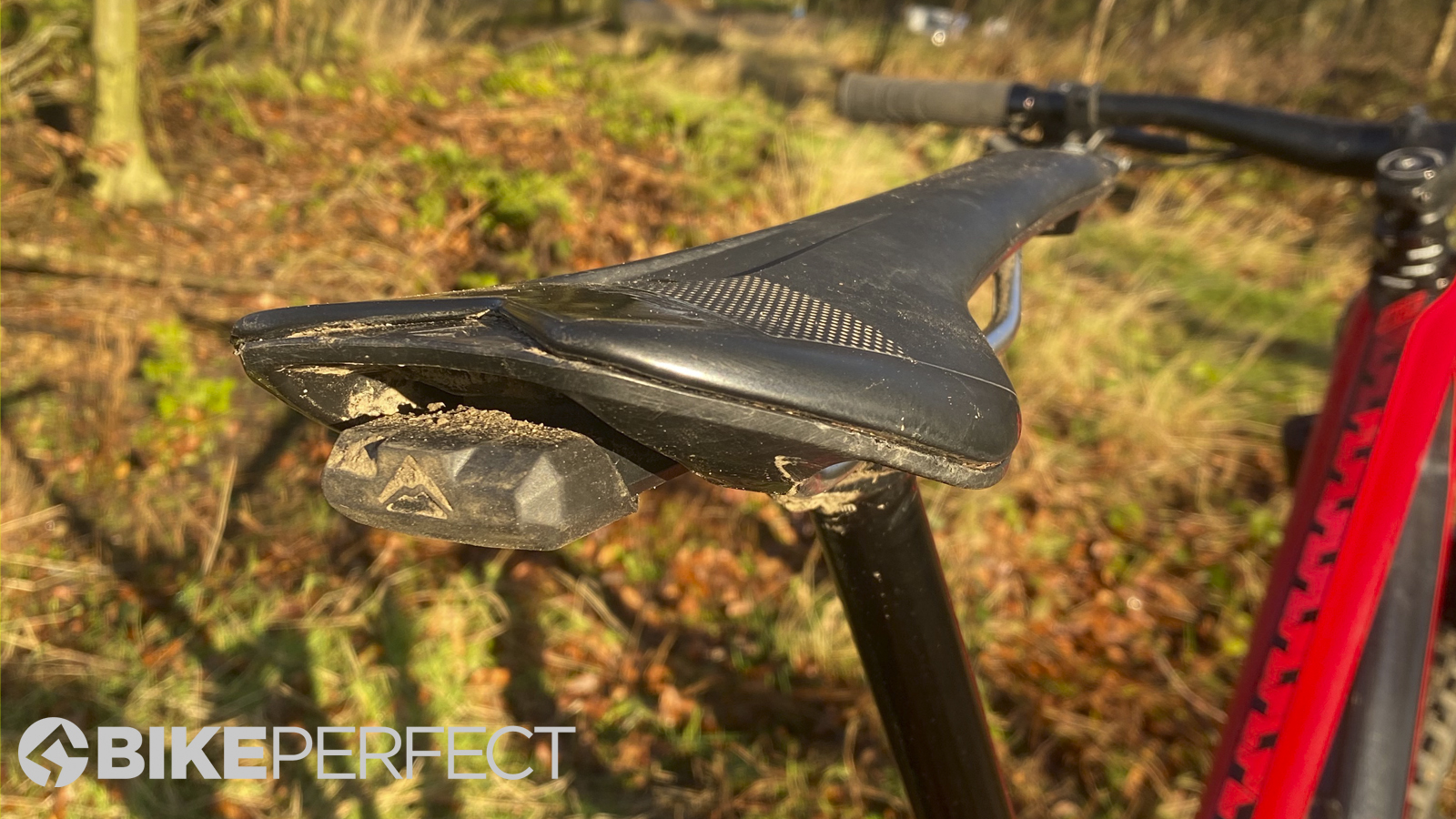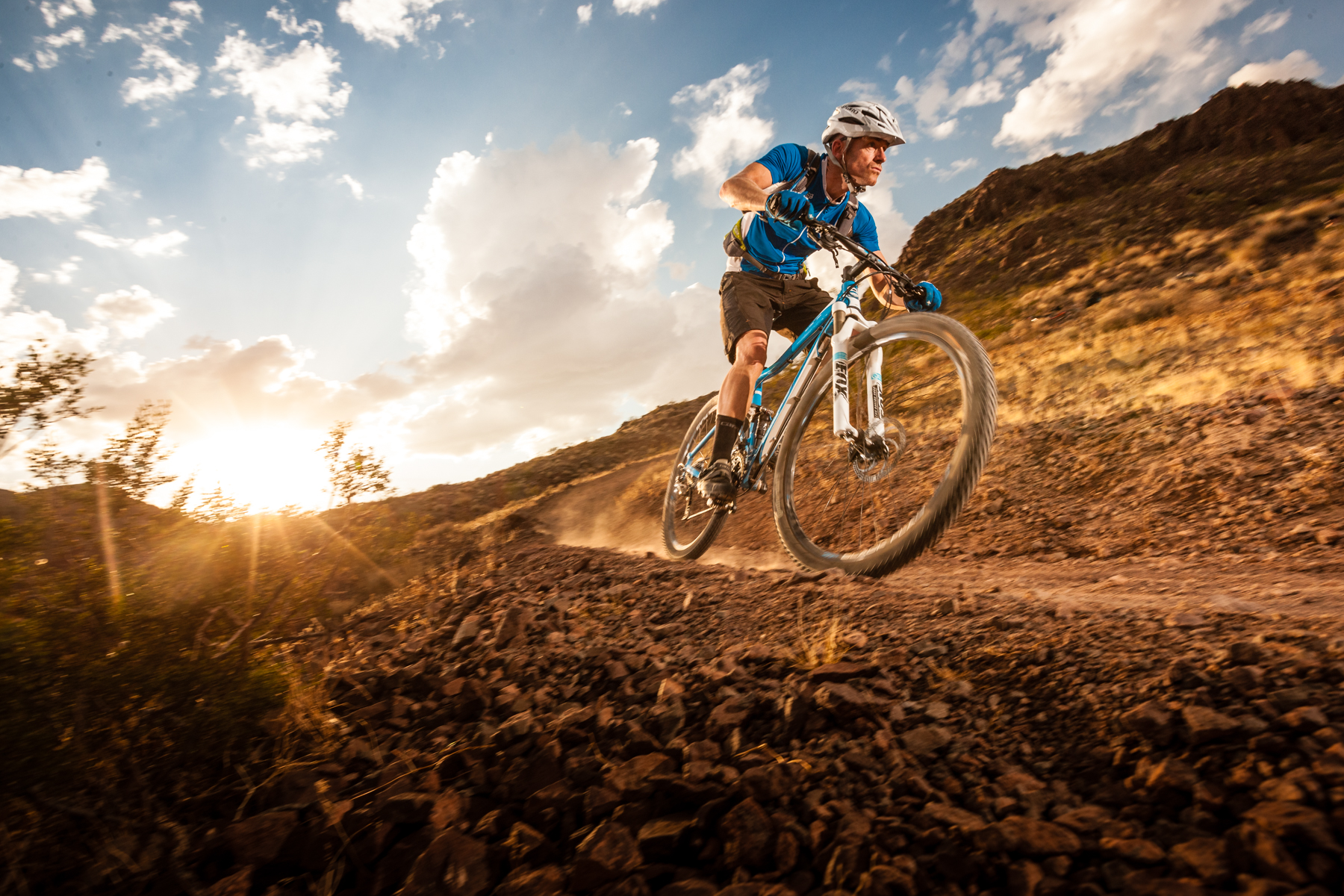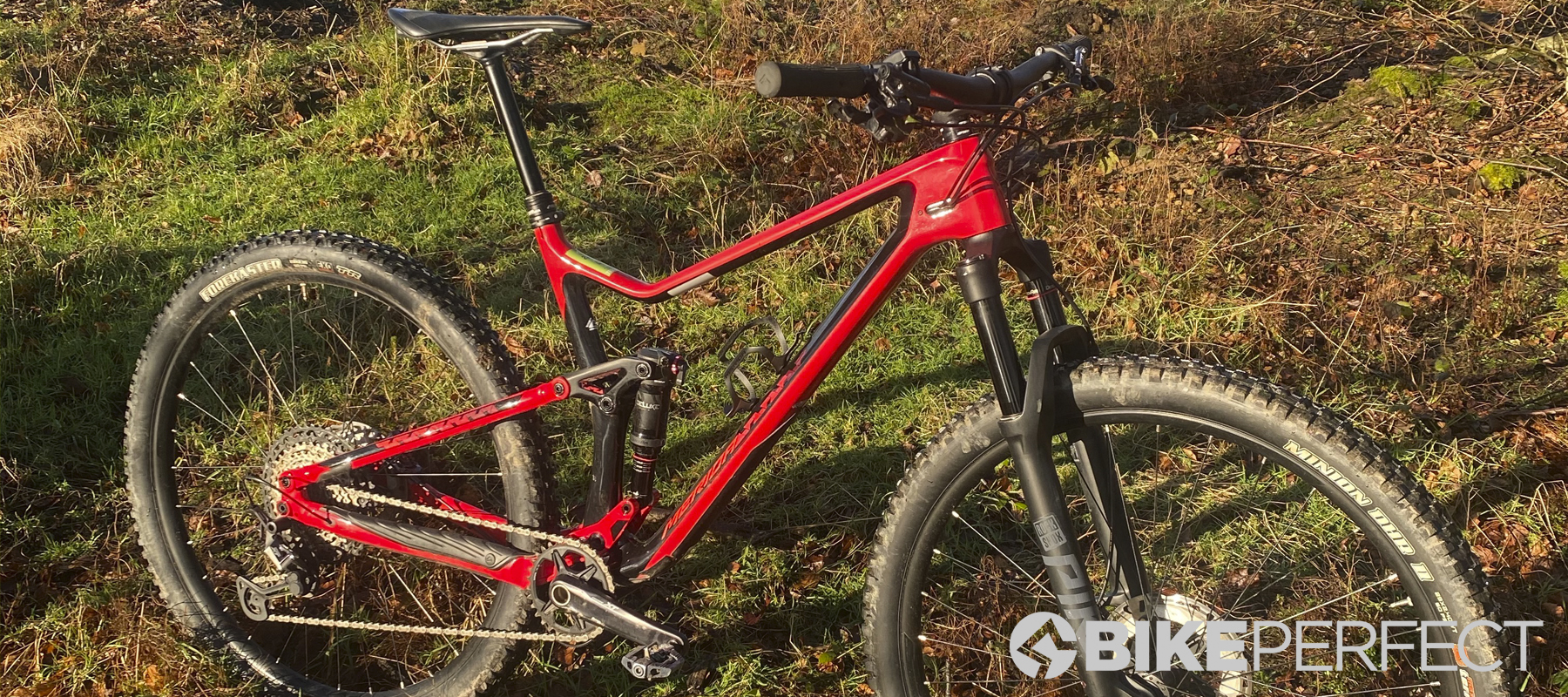Bike Perfect Verdict
The Merida may not be progressive by modern standards but its lively ride and active suspension will please those looking for a fast yet comfortable trail bike
Pros
- +
Naturally smooth and agile ride feel
- +
Relatively light
Cons
- -
Lots of pedal bounce out of the saddle
- -
Press-fit bottom bracket
- -
No S or XL sizes in the UK
Why trust BikePerfect
Compared to some enduro-style short-travel bikes, Merida’s refreshed One-Twenty stays light, smooth and lively. Add Shimano’s excellent new XT groupset and it’s a playful partner for big, old school days out but still deceptively rapid on radder stuff.
Design and geometry
A 67.3-degrees, the head tube angle is 1.5 to 2-degrees steeper than where Whyte, Santa Cruz, Norco and others have taken their 120mm bikes. The carbon mainframe gets a chunky box up front complete with clamped cable/hose entry points to keep things quiet. Reach is traditional rather than rad at 455mm on the large we tested (435mm on a medium. The effective 75.5-degree angle seat tube keeps you more centred on climbs but cramps that reach down further. The heavily kinked and back sloped seat tube top end means long seatposts extensions will make it longer but slacker in reality. There are only two sizes (M and L) currently available in the UK, although S and XL are internationally available. There’s room for a full-sized water bottle midway up the downtube and the already impact-resistant Nano-Matrix carbon gets rubber reinforcement on the belly. The high-mileage riders attracted by the relatively low weight may be put off by the potential long term issues of a press-fit bottom bracket though.
The smooth-welded 6066 alloy rear end is bolted on with single-sided Torx T30 bolts for easy servicing. The pivot junctions onto the short rocker and rear pivot are double-sided and there’s room for a chunky 2.4in tyre and maybe more depending on tread/trails. There’s plenty of rubber wrap to quieten chain noise and the rear through-axle features a removable handle that also works on the Pike Select fork up front. It knocks on the frame as you turn it though which is a bit irritating.
In terms of rear suspension, Merida floats the RockShox Deluxe Select+ shock between the upper linkage and extended tips of the chainstay. This removes any direct shock load and stress from the mainframe and the trunnion top mount gives a super-sensitive feel.
Components and build
It’s great to have Shimano back on a competitive 12-speed, single ring footing with SRAM and the 9.7000 gets a full set of XT gears and brakes. Shifting is excellent right through the gear range, particularly under power and you can even switch off the rear mech clutch for ultimate suspension sensitivity. The four-cylinder Shimano XT brakes are usefully powerful, well-modulated and generally reliable as long as they’re well bled. Ice-Tec frilled rotors and finned pads control heat on big descents. A triple compound 2.4in wide Minion DHR tyre adds serious control up front but also noticeable drag while a lighter, faster-rolling Forekaster dual-compound tyre adds responsiveness to the rear end.
Rest of the kit - including the 29mm internal rims and 170mm dropper post - is Merida branded and works fine. The 50mm stem and 760mm bar aren’t as short or wide (respectively) as some but they balance up the intermediate head angle nicely. The Ergon style grips are particularly comfy too. Just make sure you grease the set of Allen keys handily hidden under the saddle though otherwise they start rusting fast.

Ride, handling and performance
While some brands are templating the geometry of their 120/130mm bikes directly from their 150/160mm bikes, Merida has clearly decided to separate the two categories. The result is a responsive and agile handling feel that’ll suit a lot of riders intimidated by more radically raked out bikes. It doesn’t wander as much on climbs and the shorter wheelbase whips around switchbacks and through other tight sections more easily, too. The 50mm stem reduces twitchiness without lurching too much when it does turn and the 760mm bar sneaks through narrower gaps than a wider bar.
While it’s only half a kilo lighter than most bikes in its category, the more nimble feel and relatively rapid rear tyre definitely flatters that on the trail, and it’d be faster still if it had a Forekaster on the front. Stay seated and spinning and the fluid floating suspension also gives it excellent climbing grip and flows through rocks and roots easily. The frame has a naturally-sprung rather than super-damped feel that helps reduce fatigue and also flatters grip through rough corners. That all makes it an easy and enjoyable bike to push the pace on through mixed technical terrain, particularly tighter, slower speed situations.
The big volume, wide rim specific Minion DHR really anchors the front end down well. The short offset fork also makes the handling slightly more stable than it would be otherwise and lightens up the handlebar feel as it centralises mass nearer the steering axis. That lets you push it pretty hard on faster, sketchier terrain and when there were a few tight turns involved, its agility let us score some impressive Strava descent times on our test trails. It will leave you more to deal with than a slacker, longer bike when you’re flat out though and frame stiffness and the damper in the fork reach their comfortable limits at similar times.
In the supplied set-up the rear shock tends to give up travel easily rather than stabilise the bike through corners. It also bounces very obviously if you’re sprinting hard out of the saddle. Both of these would be easily remedied with a firmer ‘pedal/trail’ setting on the shock but unfortunately, it only has a hard lockout setting. Running sag higher than normal (we used around 20 per cent) firms it up, but obviously impacts smoothness over small bumps.

Verdict
The 120/130mm travel category covers everything from long travel XC bikes to short-travel enduro bikes and Merida have pitched the 9.7000 right into the middle.
You’ll find its limits earlier than some on flat-out descents and it’ll bounce more than others on power climbs. Most of the time though it’s a really easy bike to pilot. With a trail-smoothing, traction-boosting ride that feels lighter and more agile than it actually is keeping the enjoyment levels high all day. It’s decent value for a nearly full XT bike bought from a proper shop (not online), although you’ll need to shop outside the UK if you want small or XL sizes.
Tech Specs: Merida One-Twenty 9.7000
- Discipline: Trail
- Price: £3600
- Head angle: 67.3-degrees
- Frame material: mainframe, rear end
- Size: Large
- Weight: 13.7kg
- Wheel size: 29-inch
- Suspension (front/rear): RockShox Pike Select 130mm travel, 42mm offset/RockShox Deluxe Select + mm stroke 120mm travel
- Components: Shimano XT M8000 series 10-51T 12 speed cassette, rear mech, shifter. Shimano XT 32T chainset. Shimano XT brakes with 180mm rotors. Maxxis Minion DHR 3C MaxTerra 29 x 2.4in front tyre, Maxxis Forekaster EXO 29 x 2.35in rear tyre on Merida Expert TR 29mm rims with Merida Comp hubs. 760x35mm bar and 50x35mm stem, Merida Expert TR 170mm dropper post, Merida Expert CC saddle

Guy Kesteven has been working on Bike Perfect since its launch in 2019. He started writing and testing for bike mags in 1996. Since then he’s written several million words about several thousand test bikes and a ridiculous amount of riding gear. He’s also penned a handful of bike-related books and he reviews MTBs over on YouTube.
Current rides: Cervelo ZFS-5, Specialized Chisel, custom Nicolai enduro tandem, Landescape/Swallow custom gravel tandem
Height: 180cm
Weight: 69kg

